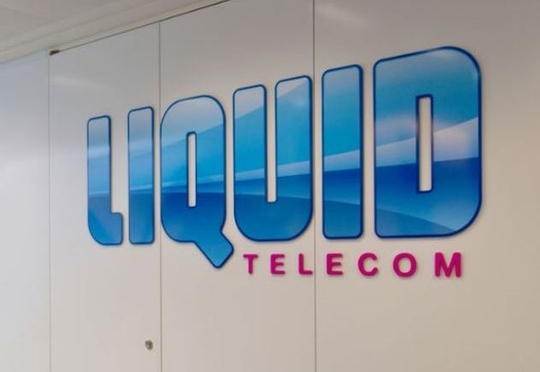|
|
|
|
|
|
|
|
in partnership
with
FLUTTERWAVE |
05.08.2020 |
|
|
|
|
|
Hello there,
Welcome to TC Daily! In today’s digest: job cuts at Liquid Telecom, Ethio Telecom restructures as it awaits two new competitors in 2021, and PlentyWaka raises $300,000 funding.
Please take a moment to subscribe to our newsletter if this email was forwarded to you.
|
|
|
|
|
|
|
|
|
Get access to quality medical consultations from licensed Medical Doctors right from the comfort of your home, at any time and at the tip of your fingers.
Here’s a great opportunity for Medical Practitioners to earn more money from consultations. Learn more here.
|
|
|
|
|
|
JOB CUTS AT LIQUID TELECOM
|
|
|
Liquid Telecom, the telecom operator owned by Zimbabwe’s Strive Masiyiwa, is planning to cut jobs, Mybroadband reports. The company says it is making a “strategic repositioning”, claiming it was making changes that relate to the company’s technological and structural needs. Liquid Telecom has already sent a notice to staff informing them about possible layoffs. The telco
could end up dropping around a third of its workforce later this year, the report says.
This news follows earlier reports that Masiyiwa was struggling to sell some of his stakes in the company. He has been trying to sell between 20% and 34% of Liquid Telecom company for $600 million. So far there have been no takers. Potential buyers have been slow as they assess the impact of the pandemic on African economies. In the meantime, it appears the job cuts at Liquid Telecom could improve the standing of the company to any potential buyer.
|
|
|
|
|
|
|
|
|
Nigerian bus hailing service, PlentyWaka has raised $300,000 pre-seed investment and is expanding to more cities across the country. The round was led by PlentyWaka’s parent company, Emfato, Microtraction and Niche Capital. PlentyWaka kicked off operations in September 2019 to provide on-demand bus services to commuters in Lagos. Six months after, it claimed to have completed 100,000 rides, although
it is unclear how this figure was computed.
Now, PlentyWaka is expanding to Nigeria’s capital city, Abuja. Compared to Lagos, Abuja is a calm city with well-developed roads networks. The city has a large workforce comprised mostly of federal government workers and employees of state-owned enterprises. Beyond the few government-owned buses, transportation in the city is dominated by cramped private vehicles. PlentyWaka is taking a shot at this market, hoping to sway price-sensitive commuters with comfortable buses in a city that witnesses minimal traffic problems.
|
|
|
|
|
|
|
Ethio Telecom, Ethiopia’s telecom monopoly, has restructured ahead of the country’s planned liberalisation of the sector. The telco has divided its network into five divisions. “We made the functional split to make the company efficient, and it is one of the best restructurings we’ve done,” Frehiwot Tameru, CEO of Ethio telecom, told a local publication, Addis Fortune. The
move is part of plans to strengthen the company’s processes ahead of the telecom liberalisation. In May, Ethiopia’s Minister of Finance, Eyob Tekalign Tolina told Reuters that the government will sell a 40% stake in the telecom while planning to issue two licences to new operators. Ethiopian Communications Authority is developing a regulatory draft that allows the new telcos to build their own network infrastructure or lease existing ones. Ethio Telecom plans to generate income through the lease agreement, offering the new players access to its 7,100 towers and 22,000km of fibre. A number of telcos including Orange, MTN Group and Safaricom have shown strong interests in the Ethiopian market.
|
|
|
|
|
|
|
Fibre optic company, Seacom is planning to upgrade and expand its network capacity as data consumption surges in Africa. Seacom, which operates Africa’s first broadband submarine cable system, says it will spend $10 million to upgrade its cable system. Although internet penetration in Africa is less than 45%, over the last three years, internet adoption has been growing as telecom providers double down on expanding their 3G/4G network infrastructure. 3G
broadband is expected to replace 2G as the dominant connectivity by the end of 2020. Meanwhile, the pandemic is intensifying consumption of bandwidth on the continent. Since March, telecom companies like MTN and Airtel Africa have reported a surge in data consumption, forcing them to expand their infrastructure to handle the growing data traffic. Now Seacom says it will double its data capacity by 1.7 terabits per second by the end of August. |
|
|
|
|
|
|
|
|
|
|
On August 2, South African retail chain, Shoprite announced it was considering pulling out of the Nigerian market. Shoprite first opened in Nigeria in 2005 and now operates 25 stores across the country according to African Business Magazine. According to a report by Estate Intels, between 2009 and 2015 Nigeria added 199,600m2 of formal retail space as Shoprite and other retailers held on to the “Africa Rising” narrative.
But, in its latest August 2020 update, Shoprite told shareholders it was considering selling “all, or a majority stake in” the Nigerian business. In this report for African Business Magazine, Dianna Games writes on the struggles of formal retail outside South Africa and how retailers have faced currency challenges and low consumer demand in these other African countries.
|
|
|
|
|
|
|
Digital Africa is holding the 8th edition of its annual conference & exhibition from August 25-27, 2020. The virtual conference will feature industry experts who will discuss what’s next for the technology sector in Africa. Confirmed speakers include Prof. Joe Amadi-Echendu, Professor, Engineering & Technology Management, University of Pretoria; Prof. Yemi Osinbajo, Vice President of the Federal Republic of Nigeria; Karima Rhanem, Chief Executive Officer, Africa My Home, Morocco, and Dr. Isa Pantami, Hon. Minister of Communications & Digital Economy. Visit www.digitalafrica.com.ng to learn more and register. |
|
|
|
|
|
|
|
TC LIVE: THE STATE OF TECH
|
|
|
|
|
Over the past three years, three countries, Nigeria, Kenya and South Africa have defined Africa’s startup and tech industry. But across the continent in most countries, there’s a growing tech ecosystem from Chad to Morocco, from Zimbabwe to Zambia.
This Friday, August 7th, we are starting a new TC Live event series titled The State of Tech. The series will dig deep into the startup ecosystems and communities across the continent, outside Nigeria, TechCabal’s HQ location.
For the first episode, we are interviewing, Malinzi Kisadha, Country Manager at Eywa Miles, a tech-enabled transport company. Before Eywa Miles, Kisadha was Founder at Digest Africa, a leading provider of
data and insights about African VC and startups. Kisadha is one of the most knowledgable persons about tech in Uganda and in the region.
Kisadha will answers questions about building a tech business in Uganda. Register here to attend the event.
|
|
|
|
|
|
|
|
|
|
|
|
|
|
|
We’ll be back tomorrow.
– Abubakar
|
|
|
|
|
Share TC Daily with your friends!
|
|
|
|
|
|
|
Copyright © 2020 Big Cabal Media,
All rights reserved.
You are receiving this email because
you signed up on TechCabal.com
Our mailing address is:
Big Cabal Media
18, Nnobi Street, Animashaun, Surulere, Lagos
Surulere 100001
Nigeria
Add us to your address book
Want to change how you receive these emails? You can
|
|
|
|
|







